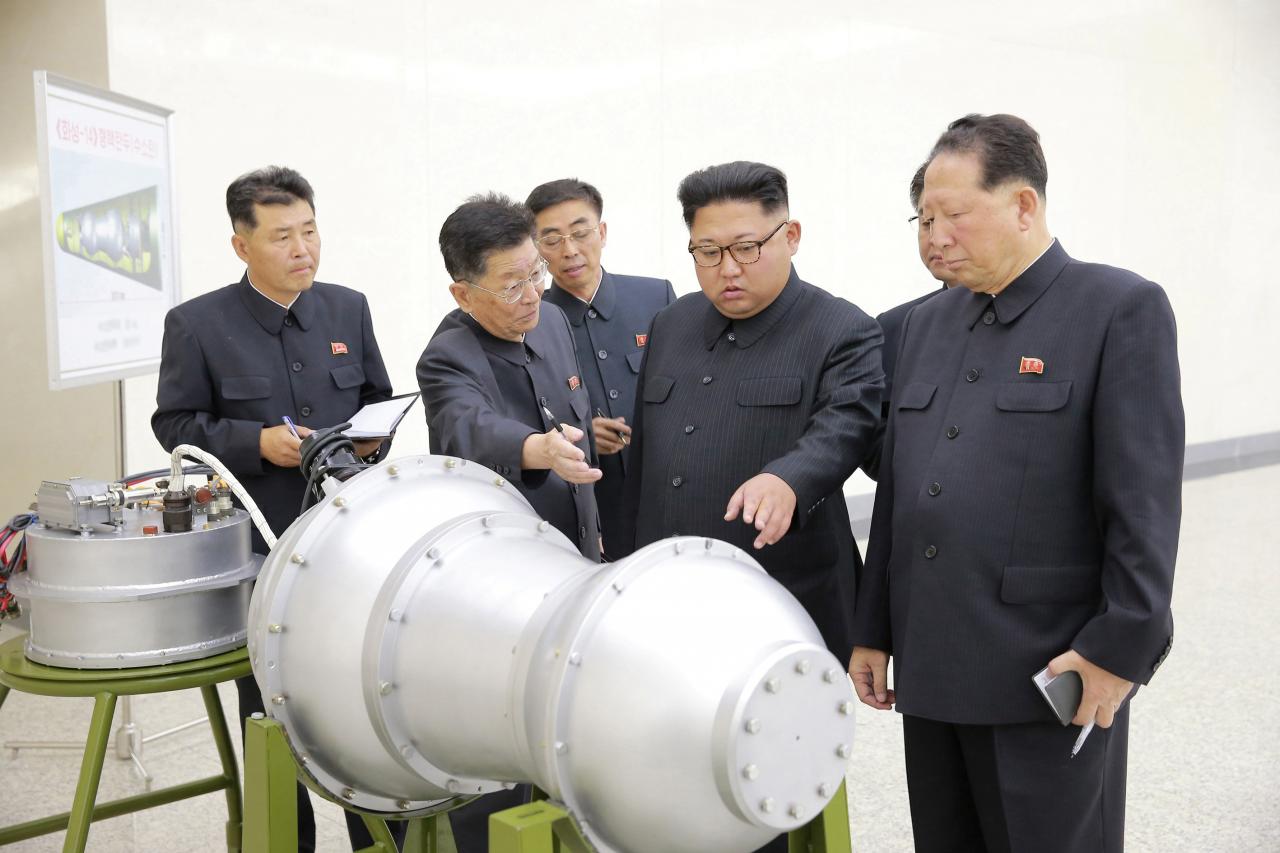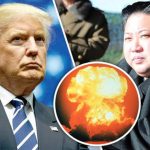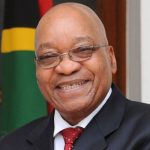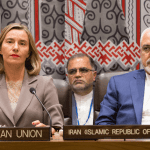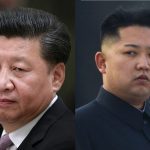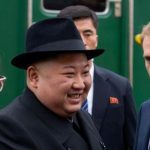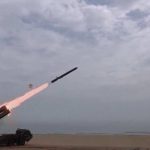The United Nations nuclear watchdog on Sunday called North Korea’s nuclear program a “grave concern” after the nation, to which the agency’s experts have no access, conducted its sixth nuclear test since 2006.
“Today’s nuclear test by the Democratic People’s Republic of Korea (DPRK) is an extremely regrettable act… Once again, I strongly urge the DPRK to fully implement all relevant resolutions,” Yukiya Amano, the head of the International Atomic Energy Agency.
“The Agency continues to closely follow developments in the DPRK’s nuclear program, which is a matter of grave concern.”
The Comprehensive Test Ban Treaty Organisation (CTBTO), which monitors seismic and radionuclide data worldwide, said the explosion was stronger than previous ones and was located at the site of earlier nuclear tests.
“If confirmed as a nuclear test, this act would indicate that the DPRK’s nuclear program is advancing rapidly,” the CTBT’s Secretary General Lassina Zerbo said.
The CTBT bans all nuclear explosions but it will only enter into force if all countries with advanced nuclear technology ratify it. The outstanding nations are China, Egypt, North Korea, India, Iran, Israel, Pakistan and the United States.
The United Nations nuclear watchdog on Sunday called North Korea’s nuclear program a “grave concern” after the nation, to which the agency’s experts have no access, conducted its sixth nuclear test since 2006.
“Today’s nuclear test by the Democratic People’s Republic of Korea (DPRK) is an extremely regrettable act… Once again, I strongly urge the DPRK to fully implement all relevant resolutions,” Yukiya Amano, the head of the International Atomic Energy Agency.
“The Agency continues to closely follow developments in the DPRK’s nuclear program, which is a matter of grave concern.”
The Comprehensive Test Ban Treaty Organisation (CTBTO), which monitors seismic and radionuclide data worldwide, said the explosion was stronger than previous ones and was located at the site of earlier nuclear tests.
“If confirmed as a nuclear test, this act would indicate that the DPRK’s nuclear program is advancing rapidly,” the CTBT’s Secretary General Lassina Zerbo said.
The CTBT bans all nuclear explosions but it will only enter into force if all countries with advanced nuclear technology ratify it. The outstanding nations are China, Egypt, North Korea, India, Iran, Israel, Pakistan and the United States.
The United Nations nuclear watchdog on Sunday called North Korea’s nuclear program a “grave concern” after the nation, to which the agency’s experts have no access, conducted its sixth nuclear test since 2006.
“Today’s nuclear test by the Democratic People’s Republic of Korea (DPRK) is an extremely regrettable act… Once again, I strongly urge the DPRK to fully implement all relevant resolutions,” Yukiya Amano, the head of the International Atomic Energy Agency.
“The Agency continues to closely follow developments in the DPRK’s nuclear program, which is a matter of grave concern.”
The Comprehensive Test Ban Treaty Organisation (CTBTO), which monitors seismic and radionuclide data worldwide, said the explosion was stronger than previous ones and was located at the site of earlier nuclear tests.
“If confirmed as a nuclear test, this act would indicate that the DPRK’s nuclear program is advancing rapidly,” the CTBT’s Secretary General Lassina Zerbo said.
The CTBT bans all nuclear explosions but it will only enter into force if all countries with advanced nuclear technology ratify it. The outstanding nations are China, Egypt, North Korea, India, Iran, Israel, Pakistan and the United States.
The United Nations nuclear watchdog on Sunday called North Korea’s nuclear program a “grave concern” after the nation, to which the agency’s experts have no access, conducted its sixth nuclear test since 2006.
“Today’s nuclear test by the Democratic People’s Republic of Korea (DPRK) is an extremely regrettable act… Once again, I strongly urge the DPRK to fully implement all relevant resolutions,” Yukiya Amano, the head of the International Atomic Energy Agency.
“The Agency continues to closely follow developments in the DPRK’s nuclear program, which is a matter of grave concern.”
The Comprehensive Test Ban Treaty Organisation (CTBTO), which monitors seismic and radionuclide data worldwide, said the explosion was stronger than previous ones and was located at the site of earlier nuclear tests.
“If confirmed as a nuclear test, this act would indicate that the DPRK’s nuclear program is advancing rapidly,” the CTBT’s Secretary General Lassina Zerbo said.
The CTBT bans all nuclear explosions but it will only enter into force if all countries with advanced nuclear technology ratify it. The outstanding nations are China, Egypt, North Korea, India, Iran, Israel, Pakistan and the United States.
The United Nations nuclear watchdog on Sunday called North Korea’s nuclear program a “grave concern” after the nation, to which the agency’s experts have no access, conducted its sixth nuclear test since 2006.
“Today’s nuclear test by the Democratic People’s Republic of Korea (DPRK) is an extremely regrettable act… Once again, I strongly urge the DPRK to fully implement all relevant resolutions,” Yukiya Amano, the head of the International Atomic Energy Agency.
“The Agency continues to closely follow developments in the DPRK’s nuclear program, which is a matter of grave concern.”
The Comprehensive Test Ban Treaty Organisation (CTBTO), which monitors seismic and radionuclide data worldwide, said the explosion was stronger than previous ones and was located at the site of earlier nuclear tests.
“If confirmed as a nuclear test, this act would indicate that the DPRK’s nuclear program is advancing rapidly,” the CTBT’s Secretary General Lassina Zerbo said.
The CTBT bans all nuclear explosions but it will only enter into force if all countries with advanced nuclear technology ratify it. The outstanding nations are China, Egypt, North Korea, India, Iran, Israel, Pakistan and the United States.
The United Nations nuclear watchdog on Sunday called North Korea’s nuclear program a “grave concern” after the nation, to which the agency’s experts have no access, conducted its sixth nuclear test since 2006.
“Today’s nuclear test by the Democratic People’s Republic of Korea (DPRK) is an extremely regrettable act… Once again, I strongly urge the DPRK to fully implement all relevant resolutions,” Yukiya Amano, the head of the International Atomic Energy Agency.
“The Agency continues to closely follow developments in the DPRK’s nuclear program, which is a matter of grave concern.”
The Comprehensive Test Ban Treaty Organisation (CTBTO), which monitors seismic and radionuclide data worldwide, said the explosion was stronger than previous ones and was located at the site of earlier nuclear tests.
“If confirmed as a nuclear test, this act would indicate that the DPRK’s nuclear program is advancing rapidly,” the CTBT’s Secretary General Lassina Zerbo said.
The CTBT bans all nuclear explosions but it will only enter into force if all countries with advanced nuclear technology ratify it. The outstanding nations are China, Egypt, North Korea, India, Iran, Israel, Pakistan and the United States.
The United Nations nuclear watchdog on Sunday called North Korea’s nuclear program a “grave concern” after the nation, to which the agency’s experts have no access, conducted its sixth nuclear test since 2006.
“Today’s nuclear test by the Democratic People’s Republic of Korea (DPRK) is an extremely regrettable act… Once again, I strongly urge the DPRK to fully implement all relevant resolutions,” Yukiya Amano, the head of the International Atomic Energy Agency.
“The Agency continues to closely follow developments in the DPRK’s nuclear program, which is a matter of grave concern.”
The Comprehensive Test Ban Treaty Organisation (CTBTO), which monitors seismic and radionuclide data worldwide, said the explosion was stronger than previous ones and was located at the site of earlier nuclear tests.
“If confirmed as a nuclear test, this act would indicate that the DPRK’s nuclear program is advancing rapidly,” the CTBT’s Secretary General Lassina Zerbo said.
The CTBT bans all nuclear explosions but it will only enter into force if all countries with advanced nuclear technology ratify it. The outstanding nations are China, Egypt, North Korea, India, Iran, Israel, Pakistan and the United States.
The United Nations nuclear watchdog on Sunday called North Korea’s nuclear program a “grave concern” after the nation, to which the agency’s experts have no access, conducted its sixth nuclear test since 2006.
“Today’s nuclear test by the Democratic People’s Republic of Korea (DPRK) is an extremely regrettable act… Once again, I strongly urge the DPRK to fully implement all relevant resolutions,” Yukiya Amano, the head of the International Atomic Energy Agency.
“The Agency continues to closely follow developments in the DPRK’s nuclear program, which is a matter of grave concern.”
The Comprehensive Test Ban Treaty Organisation (CTBTO), which monitors seismic and radionuclide data worldwide, said the explosion was stronger than previous ones and was located at the site of earlier nuclear tests.
“If confirmed as a nuclear test, this act would indicate that the DPRK’s nuclear program is advancing rapidly,” the CTBT’s Secretary General Lassina Zerbo said.
The CTBT bans all nuclear explosions but it will only enter into force if all countries with advanced nuclear technology ratify it. The outstanding nations are China, Egypt, North Korea, India, Iran, Israel, Pakistan and the United States.

